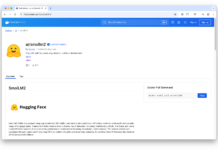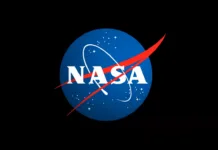Expert Asserts 2024 Betting Odds More Accurate Than Polling: A Deep Dive into Election Predictions
In a recent analysis that has captured widespread attention, Rutgers University Professor Harry Crane has asserted that betting odds for the 2024 U.S. Presidential Election offer a more accurate prediction of election outcomes than traditional polling methods. This revelation has sparked a flurry of discussions and has quickly become one of the most trending topics on Google today.
The Core Argument: Betting Odds vs. Polls
According to Professor Crane, "The data shows if you wanted a single best predictor, one source of information to know what’s going on in the elections – it’s the prediction markets." Prediction markets are platforms where individuals can place bets on the outcomes of various events, including political elections. These markets aggregate the wisdom of the crowd, often reflecting real-time changes in sentiment and information.
In contrast, traditional polling methods gather data from a sample population to forecast election results. While polling has long been a staple in predicting election outcomes, it has faced increasing scrutiny for its perceived inaccuracies. Notable polling errors in recent elections, such as the 2016 and 2020 U.S. Presidential Elections, have led experts like Crane to explore alternative predictive tools.
Why Betting Odds May Be More Reliable
Prediction markets incorporate a broad range of information, including public sentiment, expert analysis, and real-time news events. This dynamic and holistic approach can provide a more nuanced picture of election probabilities. For instance, if a political scandal breaks out or a candidate performs exceptionally well in a debate, prediction markets can immediately reflect these changes, whereas polling data may lag.
Crane warns against overconfidence, particularly for Republican candidates, stating, "Republicans shouldn’t just spike the ball just yet." This caution highlights the ever-changing nature of political campaigns and the need for both parties to remain vigilant and adaptive.
Historical Context and Recent Trends
The debate over the accuracy of prediction markets versus polling is not new. Researchers and analysts have long sought to improve the reliability of election forecasts. Historically, prediction markets have shown a strong track record. For example, in the 2004 U.S. Presidential Election, the Iowa Electronic Markets, a well-known prediction market, accurately predicted the outcome with a higher degree of precision than many polls.
Recent trends also indicate a growing distrust in traditional polling methods. A study by the Pew Research Center found that only 55% of Americans believe that political polls are reliable, a significant drop from previous years. This skepticism has fueled interest in alternative prognostic tools, including prediction markets.
Additional Insights and Reactions
The reaction to Crane’s analysis has been mixed. Some political analysts praise the emphasis on prediction markets, arguing that they offer a more comprehensive and timely reflection of the political landscape. Others caution that betting markets are not infallible and can be influenced by speculative behavior and biases.
In a recent interview with CNN, Nate Silver, founder of the statistical analysis website FiveThirtyEight, acknowledged the potential of prediction markets but emphasized the need for a multifaceted approach. "While prediction markets can provide valuable insights, they should be used in conjunction with other methods for a more rounded perspective," Silver stated.
Public Sentiment and Media Coverage
Public sentiment around this debate has been varied. Social media platforms like Twitter and Facebook are abuzz with discussions, with many users expressing their frustrations with polling inaccuracies. Hashtags such as #BettingOdds and #ElectionPrediction have trended, reflecting the growing interest in alternative election forecasting methods.
Major news outlets have also picked up on the story. The New York Times and The Washington Post have published op-eds exploring the implications of Crane’s findings. These articles delve into the potential benefits and drawbacks of relying on prediction markets, contributing to a broader conversation about the future of election forecasting.
The Role of Technology
Technology plays a crucial role in the efficacy of prediction markets. Advanced algorithms and data analytics can process vast amounts of information quickly, providing real-time updates on market trends. This technological capability is a significant advantage over traditional polling methods, which often require time-consuming data collection and analysis.
Moreover, the rise of blockchain technology has introduced a new level of transparency and security to prediction markets. Decentralized platforms like Augur and Gnosis allow users to place bets on various events, including elections, with reduced risk of manipulation or fraud.
Looking Ahead: The 2024 U.S. Presidential Election
As the 2024 U.S. Presidential Election approaches, the debate over the best predictive tools will likely intensify. Campaign strategists, political analysts, and the general public will all be closely monitoring both traditional polls and prediction markets to gauge the evolving political landscape.
For those interested in staying updated on this topic, further information can be found in the full CNN article here. As this news continues to trend on Google, it is clear that the conversation around election forecasting is far from over. Both prediction markets and polling methods have their merits and limitations, and a comprehensive approach may ultimately provide the most accurate insights.
Conclusion
In summary, Professor Harry Crane’s assertion that 2024 betting odds may be more accurate than traditional polling methods has ignited a crucial discussion about the future of election forecasting. While prediction markets offer a dynamic and real-time perspective, they are not without their challenges. As the political landscape continues to evolve, a balanced approach that incorporates multiple predictive tools will likely be essential for accurate election forecasting.
For more insights and detailed analysis, refer to the original CNN article and stay tuned for further updates as the 2024 U.S. Presidential Election draws closer.


































